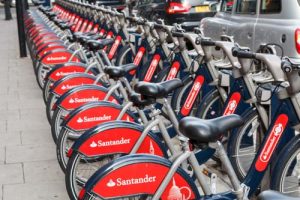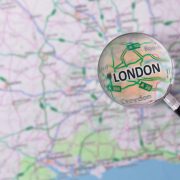 Many actors looking for more opportunities have at least once thought about moving to London. Whether you’re from the UK or from anywhere else and don’t know what living in London is like, then you’re in for a very different but pleasant experience.
Many actors looking for more opportunities have at least once thought about moving to London. Whether you’re from the UK or from anywhere else and don’t know what living in London is like, then you’re in for a very different but pleasant experience.
For actors, filmmakers, dancers, singers and other showbiz folks moving to London, this will definitely be the place to stay. Last week we’ve published a list of 10 best talent agencies that you may want to apply once you’re ready to seriously devote your time to a career in the entertainment business after moving to London.
Today, I’ve got a great and very unique list of our best tips for moving to London and thriving in this city aimed particularly at actors and those who are very eager to make the first step to become local here.
25 Tips on Moving to London From Current Londoners
If you have already looked around for tips on moving to London, then you’ve seen a ton of great advice from other websites on how to prepare and what to do once you arrive to London.
I decided that instead of listing the exact same advice you can find elsewhere, I’ll take this listicle in a different direction and provide some tips for aspiring actors moving to London you don’t usually hear about. Let’s get started.
1. It’s best to arrive during winter.
Given the island nation’s notorious weather, this may seem counter-intuitive, but January and February are the best arrival months, after the Christmas and New Year crush. Tourists are much fewer than in summer, public transport is less crowded, and there may be better deals on accommodation in London.
2. Don’t forget to dress warm.
London is cold most of the year. Even if you arrive to London in mid-summer, bring warm clothing. The British strip to shorts and T-shirts as soon as the calendar says it’s spring, but don’t be fooled: it can be uncomfortably cold, especially at night regardless of the season. Yes, you can freeze even in July.
3. Accommodation in London is very expensive.
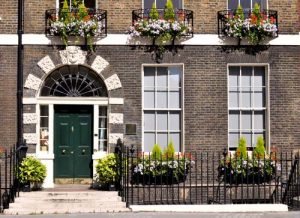 Unless you have money, the best course is to share a flat (apartment, for our US friends) or a house with roommates. A furnished room in a pleasant three- or four-bedroom house in an outer borough on London, sharing kitchen and bathroom, close to transport links, maybe with access to a (small) garden, will cost around £400-£500 ($615-$740) a month per person.
Unless you have money, the best course is to share a flat (apartment, for our US friends) or a house with roommates. A furnished room in a pleasant three- or four-bedroom house in an outer borough on London, sharing kitchen and bathroom, close to transport links, maybe with access to a (small) garden, will cost around £400-£500 ($615-$740) a month per person.
If you decide to go a little closer to London’s city center but not necessarily a fancier place, then add about £100 ($155) per borough as you move closer to the London centre. Also, add about the same per additional facility: space for eating, working, and relaxing; a kitchen; a shower or bath with toilet; or a garage.
4. Search for like-minded people ASAP.
Get the full benefits of flat-sharing in London by looking for other thespians with whom to share, especially any that have been in London longer than you have. Not only will you learn the city’s ways a lot faster by hanging out with them, but your flat-mates’ advice will also boost your chances of finding survival jobs in London, getting auditions and acting jobs in London.
5. Beware of the shady landlords.
Always, always be eagle-eyed regarding the “small print” of any flat you’re going to rent in London. Don’t settle anything on a handshake; get a copy of the tenancy agreement and know your rights and obligations. Places where you find your future flat also matter: it’s generally safer to rent from an agency than finding something on Gumtree from a private landlord.
6. Stay vigilant when looking for roommates.
 Unless you know these people very well, make sure you cover your behind. In particular, get an agreement – in writing – on the split of utility bills among the flat-mates and the dates on which payments are due. This is only fair for everybody within the household.
Unless you know these people very well, make sure you cover your behind. In particular, get an agreement – in writing – on the split of utility bills among the flat-mates and the dates on which payments are due. This is only fair for everybody within the household.
For example, if you’re moving from the US – even from expensive cities like New York or Los Angeles – you’ll see that electricity, gas, and water are all much more costly than you have encountered in the US. As a very rough rule-of-thumb, allow about £30 per person per month for gas, and the same for electricity.
7. Be clear with your flatmates.
Expats in London are a transient lot, restless and ready to move on as soon as a better opportunity presents itself. But, whether or not your flat-mates are expats – and they almost certainly will be, especially if they’re actors – have a clear agreement in advance on what happens if one or more of you needs to leave the flat.
8. Take your roommates to a pub.
Now, you’ve finally moved in with a good bunch of people and want to break the ice. If you’re not from the UK, here’s a pro tip for making friends with your new roommates: stand them all a round of drinks at a local pub.
Every neighborhood in London has many great pubs and they are central to London’s communities. Your flat-mates will warm to you instantly. To keep that warmth aglow, repeat this once a month or so – and you won’t be thought a wimp if you insist on chilled lager for yourself, rather than English bitter at room temperature.
9. Avoid unnecessary expenses.
 Unless money is no object, don’t buy a car in London. The expense is prohibitive and traffic speed in central London (where most of your auditions and acting classes will take place), averaging 10 mph, is about the same as in horse-drawn days, 150 years ago.
Unless money is no object, don’t buy a car in London. The expense is prohibitive and traffic speed in central London (where most of your auditions and acting classes will take place), averaging 10 mph, is about the same as in horse-drawn days, 150 years ago.
If money isn’t a problem, allow 35-45p (54-70 cents) per mile to cover depreciation, insurance, servicing, repairs, taxes, and petrol (gas). That may be a low estimate, depending on the type and age of your car, and it excludes parking charges. Take note: parking fees are payable even when you leave your car on the street outside your home.
10. Get on a scooter.
If you are money-challenged, but want to be independently mobile and hate public transport in London – (although it’s about a thousand times better than in Los Angeles) – get a scooter. They’re popular, despite the weather. A new Vespa 125 costs around £3,500 ($5,400) and insurance should be under £500 ($770) annually, even for an unmarried 25-year-old actor still seeking work.
Used scooters are also plentiful and easy to find on some of these websites:
- http://www.centralbikes.co.uk
- http://www.metropolismotorcycles.com/new-bikes/vespa
- http://www.motoden.com
There’s a catch, though. Unless you have an international driving license for two-wheelers, you’ll need a UK motorcycle license. Read more about this on the government’s page.
11. Remember to stay in shape.
Keen on keeping that body buff for your first audition? Bicycles are all the rage in London – and they are an excellent way to find your way around this intricate city. You can get something new and presentable (but not too flashy; bikes are a popular item with thieves) for under £250 ($385). Here’s a guide to dealers.
12. Boris bike is also an option.
Don’t want to use a bike often enough to justify owning one? Try London’s Santander Cycles system, better known to Londoners as ‘Boris bike’, nicknamed for Boris Johnson, London’s ebullient mayor, who introduced them. There are more than 10,000 of these self-service public bicycles at over 700 docking stations situated every 300 – 500 yards across London.
You can hire them on a pay-as-you-go basis with a credit card, or register to get your own key. Here’s more information on these.
13. London’s Underground is controversial.
If it must be public transport, avoid the Underground rail network, popularly called the ‘tube’. It may be famous, ubiquitous, and reasonably fast, but it’s relatively expensive and its Victorian infrastructure often causes delays. Antiquated staffing practices also provoke occasional strikes.
14. Get your passes in order.
After moving to London, if you intend to be a frequent daily user, buy one of those “go-anywhere” daily, weekly, or monthly passes, thereby cutting the cost per trip to, potentially, a matter of pennies. Spending more right now will save you a lot in the long-run, and that should be one of your priorities when living as a starving artist in an expensive city like London.
15. London’s storied red buses are still awesome.
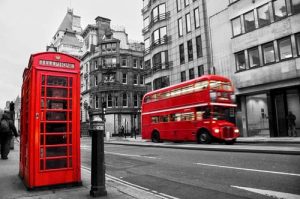 The best public transport option is London’s storied red buses. They’re not only a much nicer travel experience than the airless tube, but also much cheaper. You pay when you board, but can only use contactless credit, debit, or Oyster cards to ‘touch in’. To prevent driver muggings, cash isn’t accepted so get your passes and cards in order before you go cruising around London.
The best public transport option is London’s storied red buses. They’re not only a much nicer travel experience than the airless tube, but also much cheaper. You pay when you board, but can only use contactless credit, debit, or Oyster cards to ‘touch in’. To prevent driver muggings, cash isn’t accepted so get your passes and cards in order before you go cruising around London.
16. Try “another way to pay”.
If you’re only using public transport occasionally, get a stored-value Oyster contactless card. It’s accepted for both tube and bus travel and can be topped up at stations or on-line. It’s one of the more popular options for those “in love” with London’s public transportation, and living here while saving money, you kind of have to be.
17. Know how to get around London well.
If you choose not to have a car when living in London, then familiarizing yourself with London’s public transport system and getting around the city using alternative ways is crucial to save yourself time, stress and money.
For the full story and ‘how-to guides’ on London’s public transport fares and ways to pay, as well as on driving in the city, taxis, river-boats (a special treat), and much else, take a look at this London Drum Transport Guide.
18. Londoners like to walk.
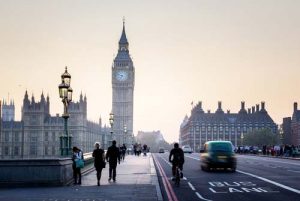 For shorter journeys, as well as to keep yourself more fit and assimilate with London’s culture, just take a stroll. Your effort will be amply rewarded by the variety of architecture, the smells and activity of street markets, and the unexpected views down little streets and alleys.
For shorter journeys, as well as to keep yourself more fit and assimilate with London’s culture, just take a stroll. Your effort will be amply rewarded by the variety of architecture, the smells and activity of street markets, and the unexpected views down little streets and alleys.
19. Always be aware.
Street crime in London is fairly rare, but don’t invite it by carrying your mobile phone, camera, wallet, or handbag in such a way that thieves can easily snatch it. London is a huge city, and just like any other metropolitan cities, there are neighborhoods that are safe and those that aren’t safe at all. The best way to avoid any problems is to stay cautious enough at all times.
20. It’s always nice to be nice.
Even though you may encounter a few bad apples, generally Londoners are polite. They say ‘please’ and ‘thank you’ at supermarket checkouts and ticket booths, to newspaper vendors and cabbies (taxi drivers); in short, on the entering into, and completion of, even the smallest transaction. If you want to fit in with the culture, the people, and become a true part of London, do likewise.
21. Take advantage of all the choices.
 London is one of the biggest cities in the world and it has almost anything you may ever want. Good food? It’s here. Good clothes? Everywhere. Awesome clubs? Plenty (just be ready to pay for them). Good beer? Probably five steps away from your current location. Although you’re here to make it as an actor, don’t forget to take advantage of all the joys of life, and London has plenty to offer.
London is one of the biggest cities in the world and it has almost anything you may ever want. Good food? It’s here. Good clothes? Everywhere. Awesome clubs? Plenty (just be ready to pay for them). Good beer? Probably five steps away from your current location. Although you’re here to make it as an actor, don’t forget to take advantage of all the joys of life, and London has plenty to offer.
22. Mind your manners.
Stereotypes exist for a reason, and Londoners are usually reserved and like to follow the rules. So if you’re not from here, remember that whatever you do, never jump a queue (foreigners do that a lot). They are mandatory wherever a crowd gathers to effect a single action: entering a building, buying a ticket, at shop tills, etc. The only exceptions are bus stops serving more than one route.
23. Consider giving up your smokes.
Although you don’t have to, giving up smoking could be a great idea on many levels once you become certain about moving to London. In this city, smoking is forbidden in any enclosed space and, even in the open air, Londoners are increasingly intolerant of the noxious weed. If you’re coming from a place like Los Angeles, you’re already familiar with this type of culture. Smoking is also ruinously expensive in London at about £9 ($13.85) for a pack of Marlboro, and still going up.
24. Stay calm to fit in.
 Something people will rarely bring up but will always notice – especially among foreigners – is the volume of speech when you’re communicating in public. This goes back to minding your manners, following the rules like everybody else does in a civilized society and staying polite. If you’re looking to fit in, try lowering your voice. True Londoners tend to be soft-spoken.
Something people will rarely bring up but will always notice – especially among foreigners – is the volume of speech when you’re communicating in public. This goes back to minding your manners, following the rules like everybody else does in a civilized society and staying polite. If you’re looking to fit in, try lowering your voice. True Londoners tend to be soft-spoken.
25. London’s police is not what you’d expect.
If you’re moving to London from the United States, you’re well aware of the conflicts between the police and the citizens that have been brought to the public’s eye in the last several years. In UK, the situation is different. London’s police are part of the community and are generally nice people. Be respectful, but not aloof; ask one for directions if you’re lost – and chat a bit, if you like.

